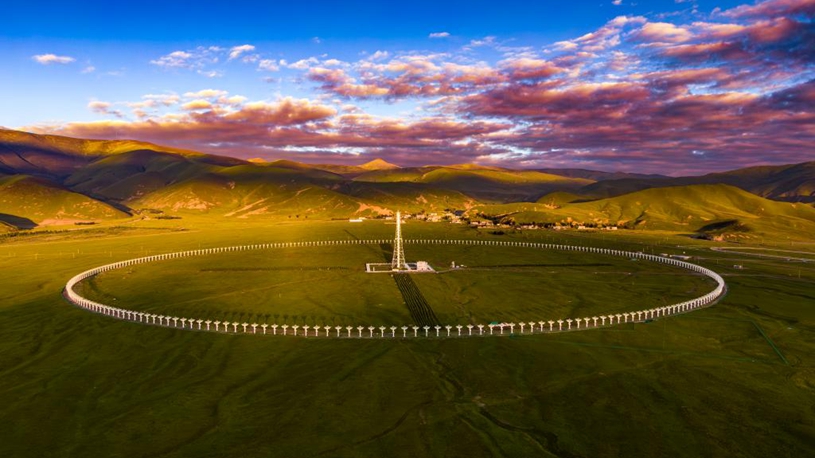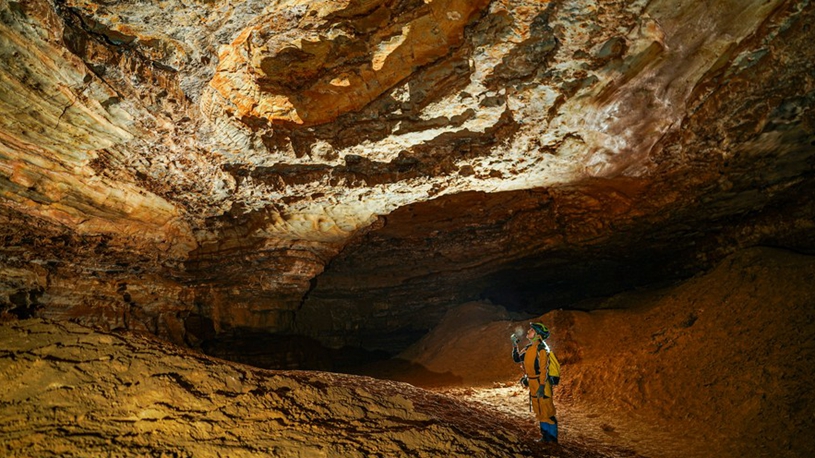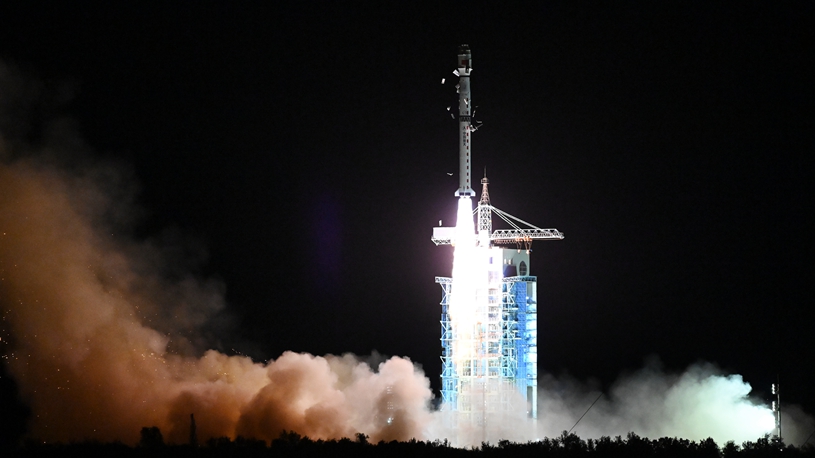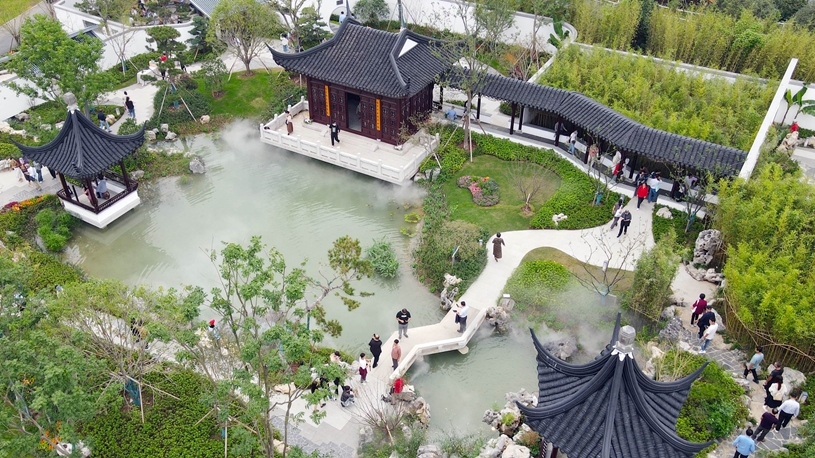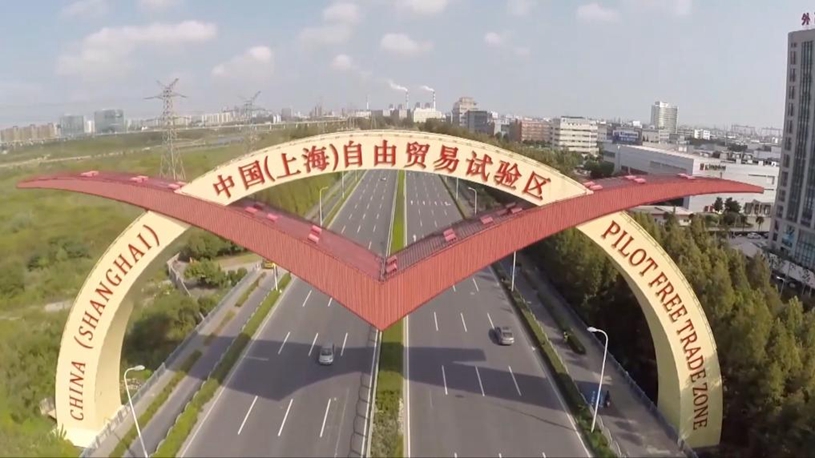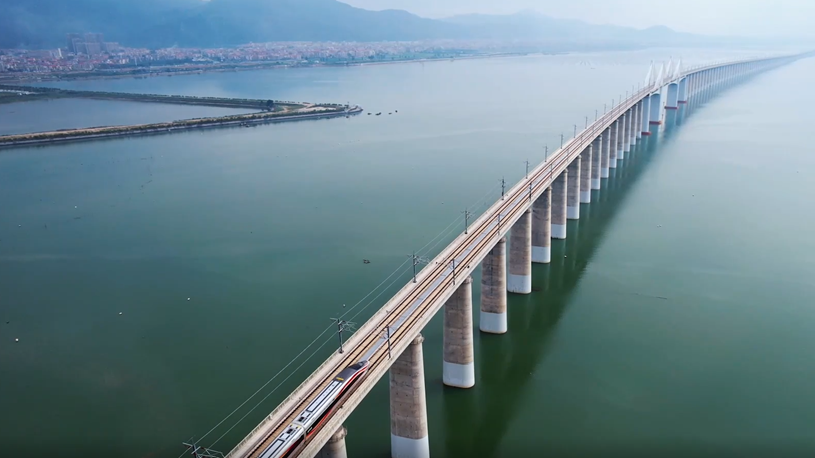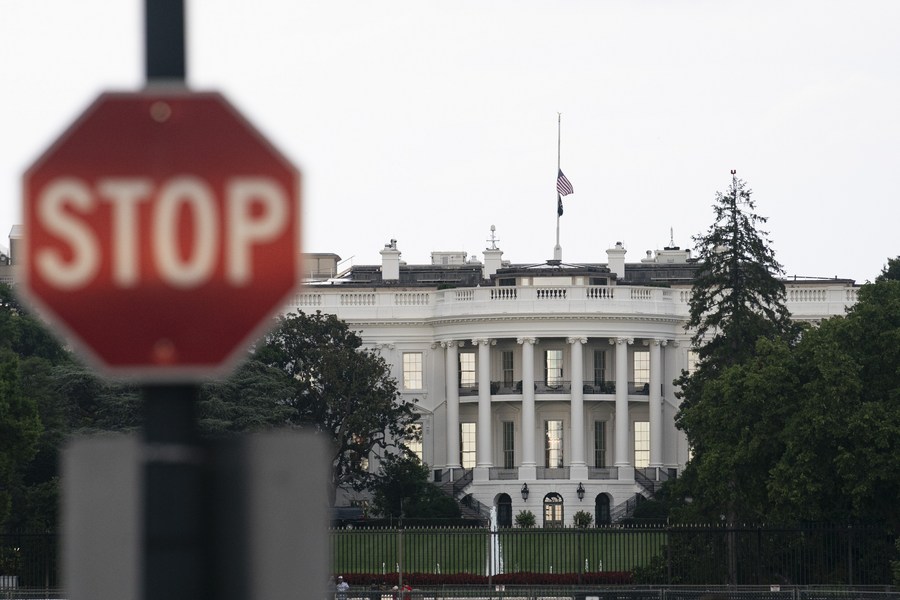
This photo taken on Aug. 4, 2022 shows the White House and a stop sign in Washington, D.C., the United States. (Xinhua/Liu Jie)
When Washington tries hard to sell its rubber cheque, the Pacific Island countries can easily see through it -- the hegemonic power is just treating them as disposable pawns.
BEIJING, Sept. 29 (Xinhua) -- The United States' unpredictable nature is reflected in its inconsistent funding for infrastructure in Pacific Island countries.
After U.S. President Joe Biden spoke of a sum of 40 billion U.S. dollars in his welcoming remarks on leaders of Pacific Island countries at the White House on Monday for a summit, the number was soon corrected by an official as 40 million dollars. A White House statement later on revealed the number as 200 million dollars.
Still, it doesn't matter how much the country pledges because the United States may not have the sincerity to fulfill its promise.
Take the Build Back Better World (B3W) initiative, proposed by the United States and its other G7 partners two years ago. The global plan aims to close a 40-trillion-U.S. dollar infrastructure investment gap in developing countries, but progress remains elusive.
As Foreign Affairs magazine has said, the B3W has "languished" with announced projects worth "a paltry 6 million dollars," a far cry from the billions Biden has promised.
At the G7 summit in 2022, the B3W was rebranded as Partnership for Global Infrastructure and Investment, but a similar situation played out again regarding implementation.
Even with those unfulfilled plans came the recent U.S.-backed IMEC initiative, or the India-Middle East-Europe Economic Corridor, a so-called network aiming to connect goods and services between Europe and Asia via the Middle East that does not clarify financial sources.

This photo taken on Jan. 20, 2023 shows the White House in Washington, D.C., the United States. (Xinhua/Liu Jie)
The IMEC is a geopolitical game intended to woo India and attract other countries such as Saudi Arabia, the United Arab Emirates and Israel, said Swedish scholar Hussein Askary in an interview.
The plan, the scholar added, is entirely out of touch with reality. Politicians pushing the agenda remain steeped in their own ideology, with a limited understanding of economics and a lack of knowledge of geography.
Before the pledges of 200 million dollars for Pacific island nations, there was already an 800-million-dollar aid that has not been cashed.
No wonder Solomon Islands Prime Minister Manasseh Sogavare chose to skip this year's summit with Biden.
All those who pay lip service are driven by a Cold War mentality and U.S. ambition to defend its global hegemony. The United States has never cared about helping developing countries.
The intention of the sham aid, as Reuters pointed out, aimed "at curbing inroads by China into a region Washington considers strategically crucial."
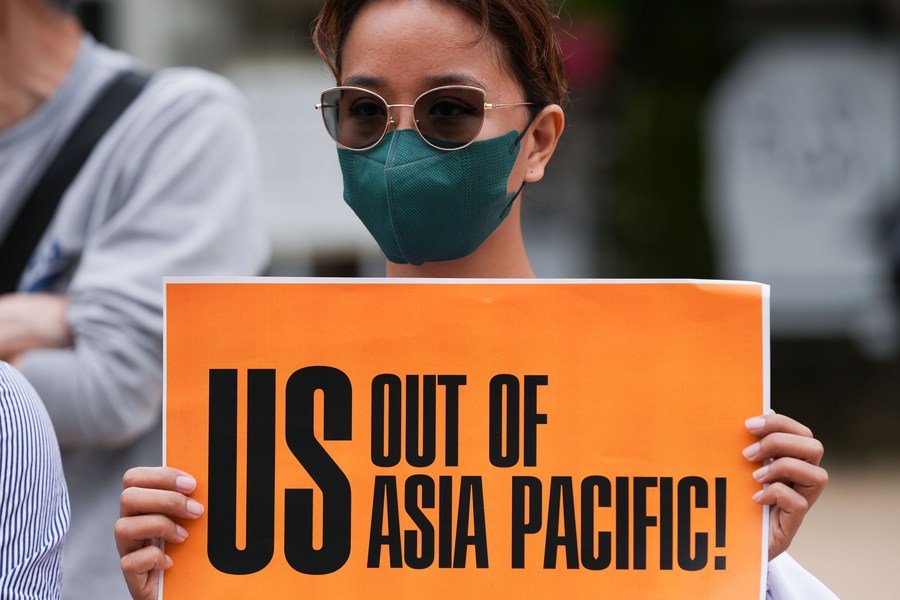
A demonstrator holds a placard at Hiroshima's Funairi Daiichi Park in a protest against the Group of Seven (G7) summit in Hiroshima, Japan, May 19, 2023. (Xinhua/Zhang Xiaoyu)
When Washington tries hard to sell its rubber cheque, the Pacific Island countries can easily see through it -- the hegemonic power is just treating them as disposable pawns.
A country that acts capriciously cannot be a reliable partner and will only cause instability and harm to the world. The United States should match its actions with words rather than spread empty rhetoric. ■

